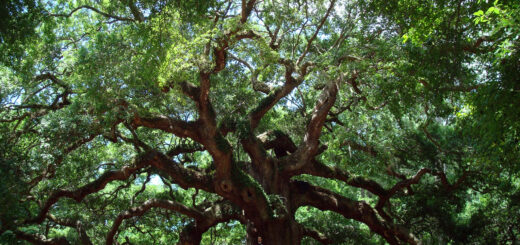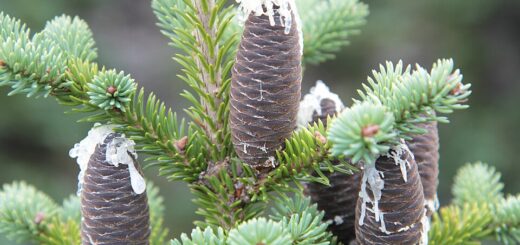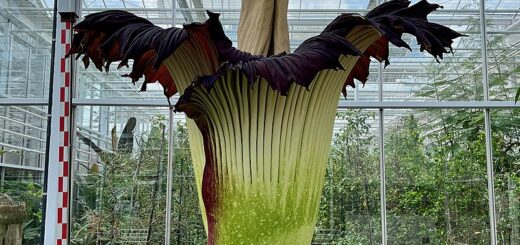Kousa Dogwood Tree – It Brings Beauty Year-Round
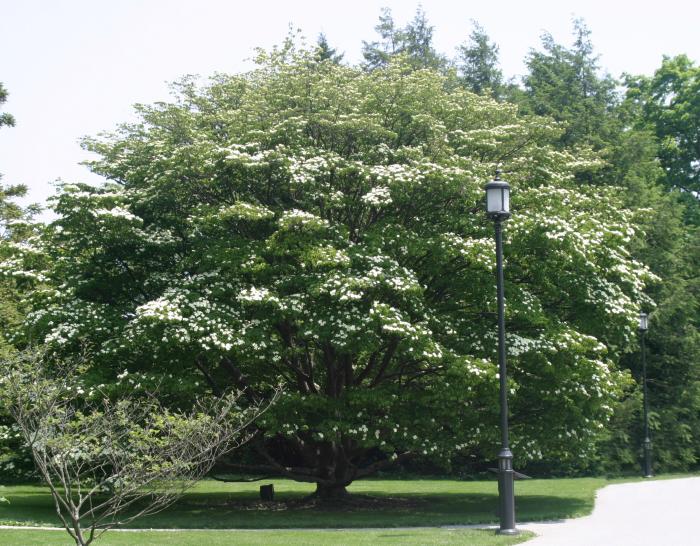
If you’re on the hunt for a tree that delivers beauty in every season, look no further than the Kousa Dogwood (Cornus kousa). Native to parts of East Asia, including Korea, China and Japan, this elegant ornamental tree has become a favorite in landscapes across North America. And for good reason: it’s not just pretty, it’s a performer.
Other names include Japanese dogwood, Korean dogwood and Chinese dogwood.
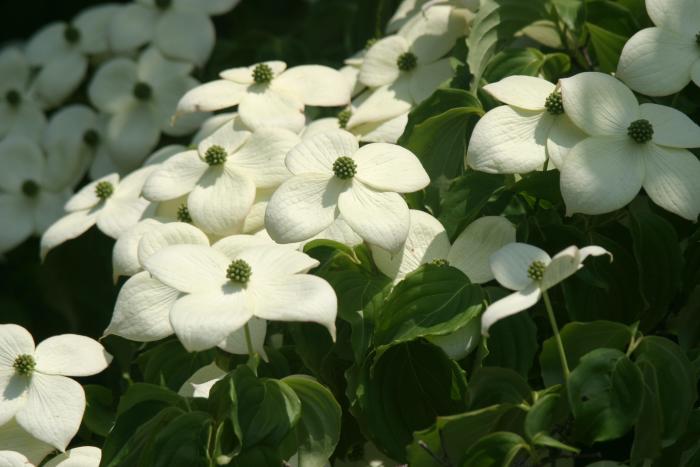
Kousa Dogwood flowers at Longwood Gardens. – Creative Commons | Author: Henryhartley – Source: https://commons.wikimedia.org/wiki/File:Cornus_kousa_flowers_img_2068.jpg
Spring Blooms That Steal the Show
One of the Kousa Dogwood’s most enchanting features is its bloom time. Unlike its American cousin, Cornus florida, which flowers in early spring, the Kousa waits until late spring to early summer. This means it avoids frost damage and extends the flowering season in your garden.
Its blooms, which are actually bracts (modified leaves), form a star-like shape in creamy white or pale pink and create a dramatic contrast against its dark green foliage. The tree appears covered in soft, floating blossoms—almost as if it’s dusted in snow.
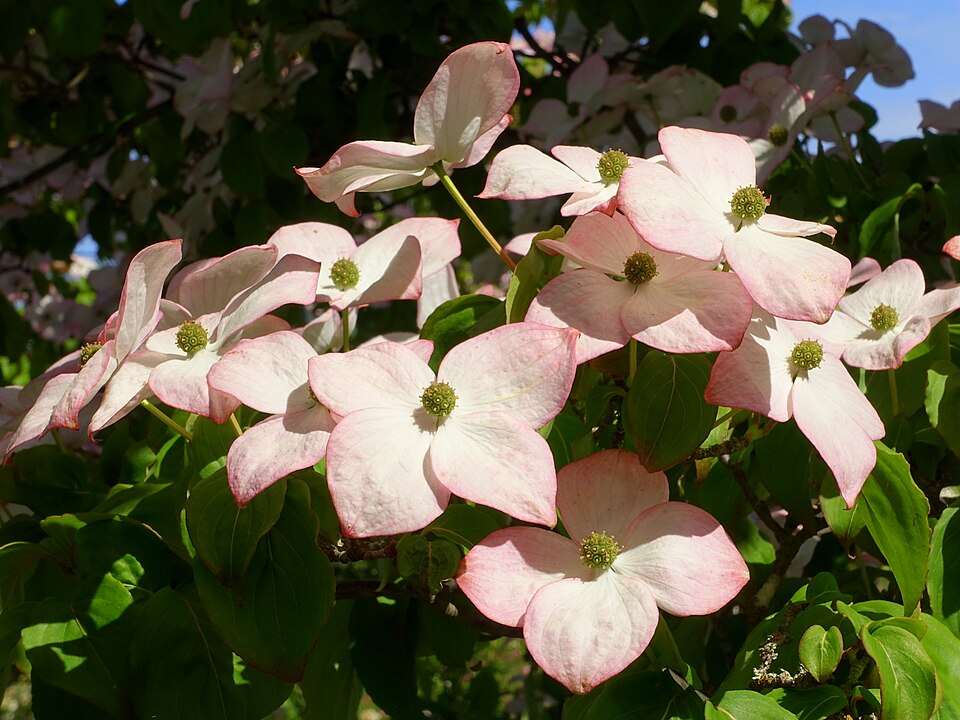
Kousa Dogwood in the VanDusen Botanical Garden – Vancouver, BC, Canada. – Creative Commons | Author: Daderot – Source: https://commons.wikimedia.org/wiki/File:Cornus_kousa_%27Satomi%27_-_VanDusen_Botanical_Garden_-_Vancouver,_BC_-_DSC06750c.jpg
Summer Shade and Glossy Green Leaves
After its flowering show, the Kousa Dogwood shifts into a lush summer canopy. Its broad, ovate leaves create a tidy, dense crown that offers a good amount of shade for patios or understory gardens. It’s also a relatively low-maintenance tree, which makes it a great choice for homeowners who want something beautiful without much fuss.
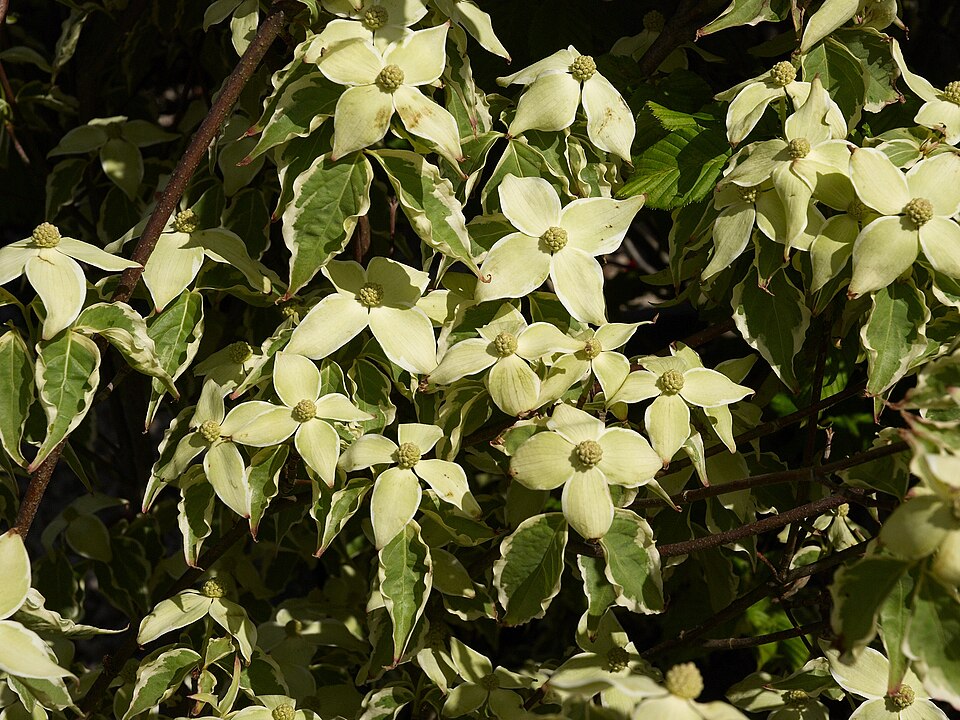
Cornus kousa ‘Samaratin’. Photo taken in an arboriculture in Vossem, Belgium – Creative Commons | Author: Wouter Hagens – Source: https://commons.wikimedia.org/wiki/File:Cornus_kousa_Samaratin_B.jpg
Fall Fireworks
Come autumn, the Kousa Dogwood delivers another surprise: a brilliant array of red, orange, and purple foliage that lights up your landscape. It’s a slow burner, often holding onto its colorful leaves longer than many other trees, giving your garden a warm, cozy feel well into the season.
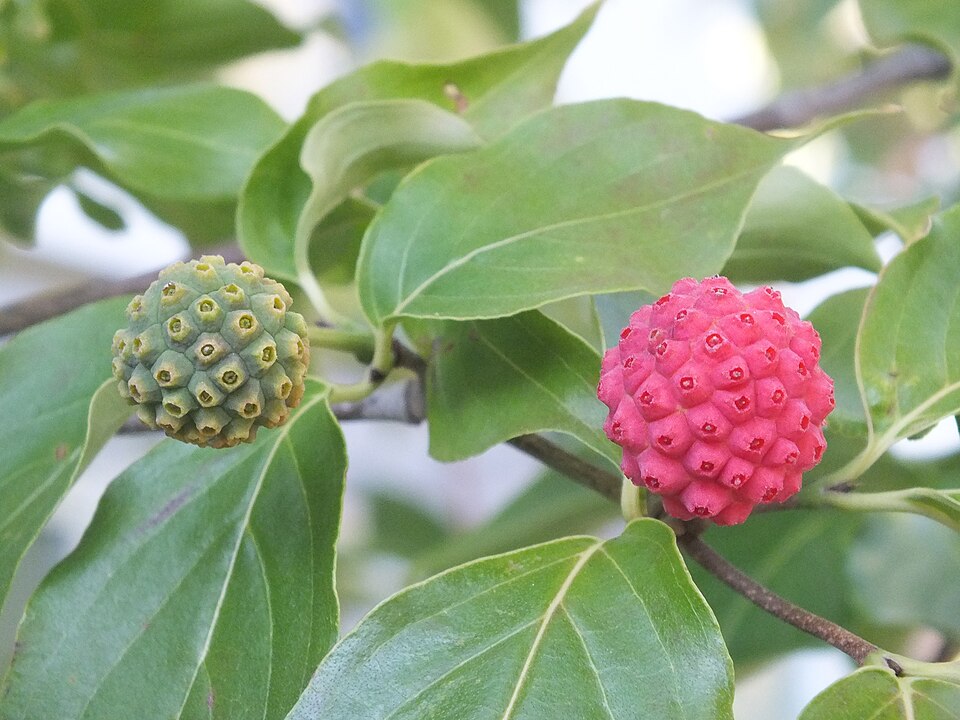
Kousa Dogwood in Dachau, fruits in August – Creative Commons | Author: Wzwz – Source: https://commons.wikimedia.org/wiki/File:Wzwz_tree_01e.jpg
Edible (and Pretty) Fruit
In late summer to early fall, the tree produces small, raspberry-like fruit, round, reddish-pink berries that are not only ornamental but also edible. The taste is somewhat tropical, a bit like a mango or papaya, though the texture can be an acquired taste. Birds love them too, so your backyard wildlife will be thrilled.
Winter Interest and Bark Beauty
Even in winter, the Kousa Dogwood doesn’t fade into the background. As it matures, its bark begins to exfoliate, revealing a patchwork of gray, tan, and cinnamon beneath. This mottled bark creates striking visual interest against a snowy backdrop or bare garden.
Why Choose Kousa Dogwood?
Disease-resistant: It’s more resistant to the dogwood anthracnose disease than native varieties.
Adaptable: Thrives in full sun to partial shade and tolerates a range of soil types.
Wildlife-friendly: Its fruit feeds birds, and pollinators love its flowers.
Compact size: Typically grows to about 15–30 feet tall—perfect for small yards or urban gardens.
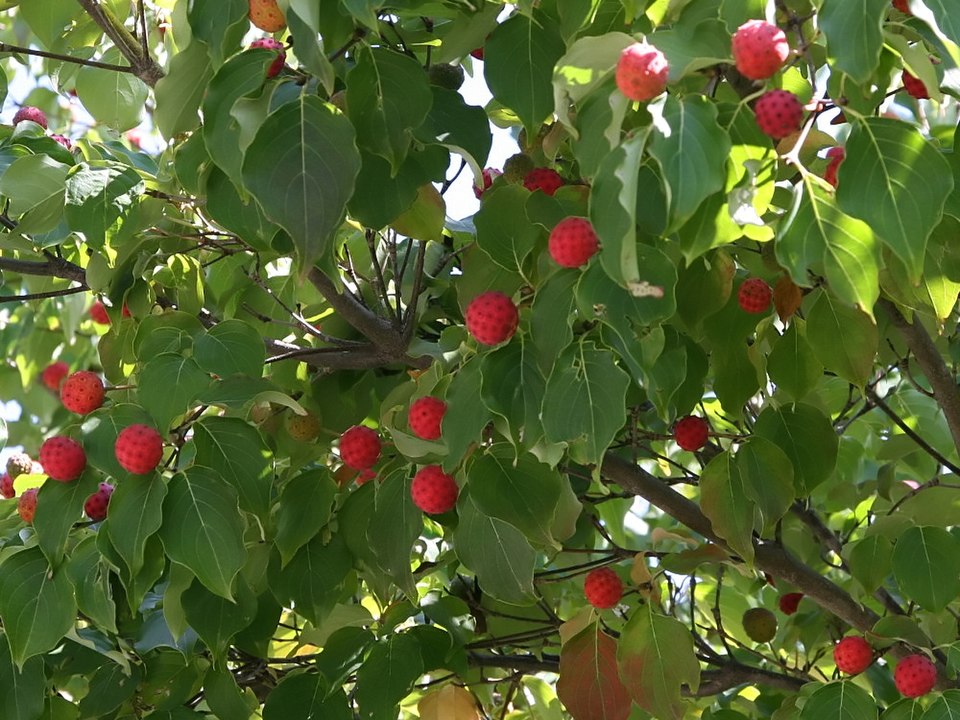
Foliage and fruit, North Carolina Arboretum, Asheville – Creative Commons | Author: Photo by David J. Stang – Source: https://commons.wikimedia.org/wiki/File:Cornus_kousa_14zz-fruit.jpg
A Tree That Rewards You All Year Round
Whether you’re a seasoned gardener or just starting to landscape your home, the Kousa Dogwood is a tree that rewards you all year round. With stunning seasonal changes, low maintenance needs, and ecological benefits, it’s a botanical gem that blends function with form.
So next time you’re at the nursery, take a moment to appreciate the Kousa Dogwood. Better yet, bring one home. Your garden will thank you.
References:
https://en.wikipedia.org/wiki/Cornus_kousa

